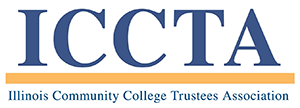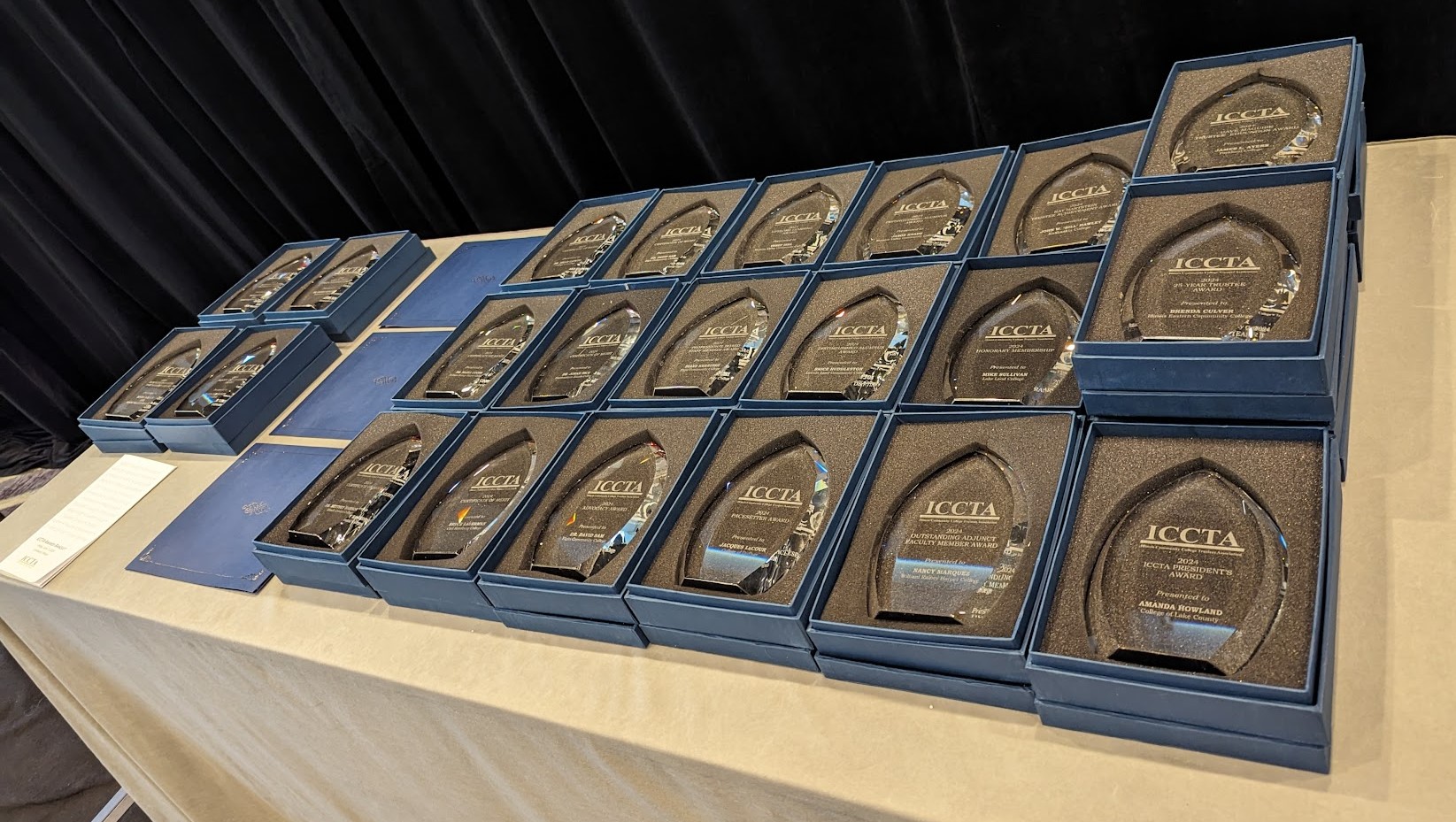ICCTA Gandhi/King Peace Essay Scholarship
2017 Recipient
Mauro Rosiles
Elgin Community College
The lives of Mahatma K. Gandhi and Martin Luther King Jr. are rightfully held as a wonderful beacon for the potential possibilities we can all achieve. That these two men found in themselves sufficient inner strength to keep marching when their adversaries threatened to kill them is truly inspirational.

Elgin Community College student Mauro Rosiles (left) accepts his $500 Gandhi/King Peace Essay Scholarship from ICCTA secretary Kathy Spears and Oakton Community College trustee emeritus Jody Wadhwa.
Both of these men managed to turn around even the negative experience of being thrown into jail into a spectacular positive. Gandhi learned and exercised incredible restraint and patience, as for days he fasted to protest the British authorities. King rather being angry at the authorities, used his time wisely in jail to write the Birmingham letter. Thus we can begin to appreciate already the heart of one of their lessons: Happiness and wisdom can be found amidst the naked unfairness all of us receive in our lives.
We are often told that the first impression is everything, and rarely do we stop to think, "Why is that?" Neither Gandhi nor King began as remarkable students, and as youths, did not immediately consider fighting for social justice as many people might presuppose. Gandhi pushed for social reform because of his experiences as a lawyer. While we often wish for courts to be truly fair, in the 20th century there was little chance that a British court would give equal counsel, let alone trial, to an Indian. And then just as now, the swirling petty accusations lawyers lobbied against their opponents plagued the integrity of the courts. From this, Gandhi discovered the repulsiveness of winning simply for the sake of winning. He came to believe in slow, steadily won victories, all the way up to the point one of his own people -- a Hindu nationalist -- fatally shot him.
When King was a child, one can only imagine what must have been his parents' shame and embarrassment to have to explain to their young boy his "inferiority" for no crime committed and no ill will exercised, as the parents of his white friends would no longer allow him to see their children as they began growing up. King, as he grew up, was forced to begin to fear for his life as his home was bombed and several death threats came his way. This failed to deter him from proclaiming that Christian virtues of selflessness, lasting love, and charity were the true way to achieve progress. He became the leader of the Southern Christian Leadership Conference and on August 28, 1963, delivered one of the greatest speeches in history -- the "I Have A Dream Speech" -- a speech widely proclaiming to everyone to be mindful of their decisions towards others and, rather than hate someone emptily, attempt to improve the strength of their consciousness as you would your own.
These two men worked so hard to get all us to realize the transgressions we are able to commit against each other large or small. That body of spirit lies within each of us, regardless of the nature or immediate recognition of our innate talents, which sadly enough, many people do not adequately get the chance to express. Poverty, glorification of senseless wars, racial conflicts, etc., interrupt peoples' lives now as much as they did in the seemingly mythical past when these two men were alive. Let us not forget, as powerful as the torrent of justice's waves can be in reaching to people, there are just as many others unfortunately left behind who, in their ignorance, are just as willing to construct a dam to stop others from being cheerful even at the cost of cherishing their own lives.
|



